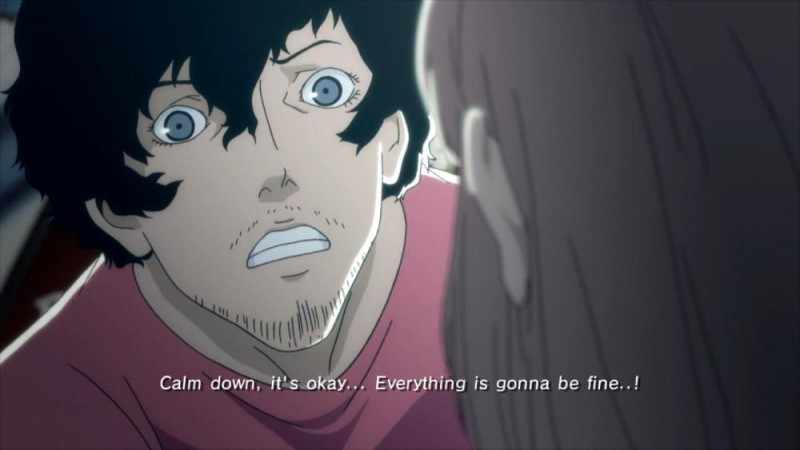In Defense Of Japanese Games

No one is shocked when I tell them that two of my top three games of all time were created in Japan (Super Mario Bros. 3 and Final Fantasy VI, for the record). Why should that be surprising? The Japanese side of the industry has produced some incredible games – in the past. In recent years, I’ve noticed a growing trend of gamers writing off Japanese developers, saying they’re stuck in the past, they embrace archaic design, and they aren’t putting out interesting games.
Well, I beg to differ. In fact, allow me to make a controversial statement: I think that the most intellectually and artistically interesting non-indie games on the market today are being developed in Japan.
One obvious example is Dark Souls, a distinctly Japanese title that is actually getting the attention it deserves. As most publishers lean toward simplifying games and putting in loads of tutorials to make sure the player understands every aspect of what’s happening, From Software had the courage – some might say stupidity – to simply throw players into the world it created. The developer has faith that we can figure it out on our own. And with a bit of work, we can.
Atlus’ Catherine provides another example of a Japanese game doing things Western games rarely attempt. I have some problems with the core gameplay of this title, but those issues don’t detract from how fascinating it is. Atlus built a whole game around the idea of being scared of commitment. Protagonist Vincent doesn’t carry a gun and doesn’t have powers or some great destiny. He’s a boring, not terribly likable guy with relationship issues. Sure, things get more supernatural as the plot starts twisting, but the concepts Catherine is dealing with remain more down-to-earth and relatable than anything you’ll find in your average multi-million-selling military shooter.
Of course, some Western games are equally artistically adept, so what separates the design philosophy of the average Western developer from a Japanese studio? As best I can tell, the answer is the end goal – bringing a careful, exact idea to fruition versus trying to create something that everyone can play and appreciate. Where a Japanese developer is more likely to focus on a narrow, specific (and often fresh) style or theme, Western studios tend to look for a shotgun blast of accessible gameplay that hits the widest audience possible.
This difference is most evident in the Western game market’s intense focus on iteration. Sometimes this works out for the better (the improvements between Mass Effect and its sequel) and sometimes for the worse (the decline between Dragon Age and its sequel), but almost every Western publisher is hell-bent on iteration and expansion as the best business plan. From Madden to Call of Duty to Assassin’s Creed, yearly releases are becoming the expectation from major franchises.
Compare that to the Japanese market. We’re lucky to get two or three releases per console generation from major Japanese franchises like Zelda and Final Fantasy. We’ve been waiting since the launch of the PS3 for a single game from the visionary Team Ico. Outside of Blizzard and Valve, how many U.S. or European developers are willing or able to give themselves that much time to focus on a single game?
Yes, Japan has severely iterated games coming out as well – especially from publishers that are openly trying to Westernize themselves, such as Capcom – but the top-ranked Japanese releases are consistently more intellectually engaging to me than the biggest Western releases. The visual beauty of El Shaddai and the gonzo humor of Shadows of the Damned are unmatched by developers on this side of the world save for some of the top-tier indie-developed Xbox Live Arcade and PlayStation Network releases.
So why is it so increasingly common for a wide swath of gamers to be dismissive toward games with Japanese sensibilities? Is it because these titles don’t attempt to appeal to as many people as possible and, as such, aren’t as financially successful? Shadows of the Damned and El Shaddai are notorious poor sellers, and even the more successful Japanese titles like Dark Souls and Catherine will never put out Call of Duty numbers. But do they need to? Is making the most amount of money from the widest audience possible the only thing games should aspire to?
As much as I love plenty of Western games, I’m glad there are still developers like many of those in Japan who are willing to stick to their vision for a game regardless of whether that closes it off to a portion of the audience.
The views and opinions expressed on this page are strictly those of the author and not necessarily those of Game Informer or its staff. This editorial originally appeared in issue 225 of Game Informer.

Get the Game Informer Print Edition!
Explore your favorite games in premium print format, delivered to your door.
- 10 issues per year
- Only $4.80 per issue
- Full digital magazine archive access
- Since 1991









